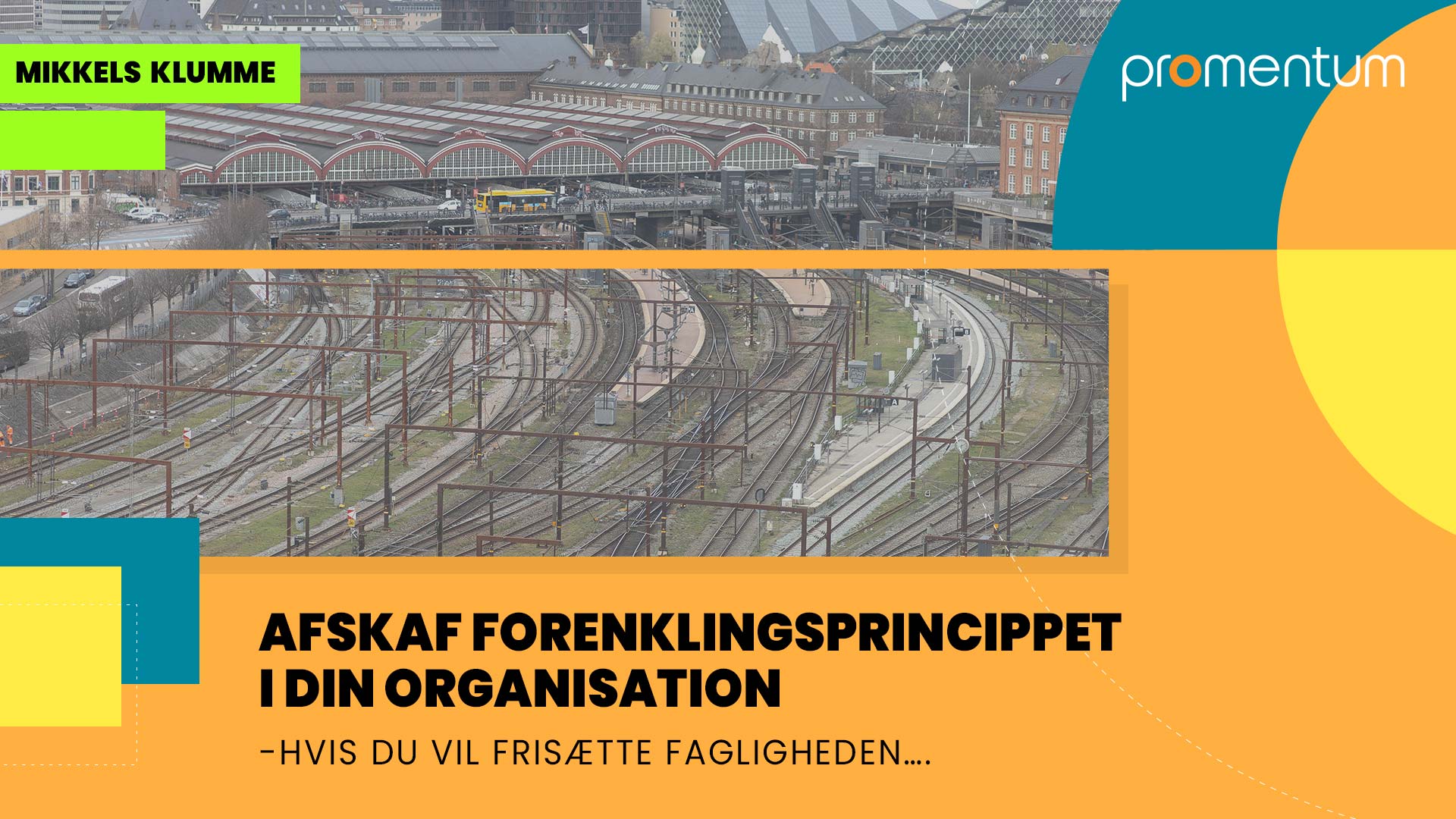– If you want to liberate expertise…
For many organisations implementing a liberating regenerative organisation, the abolition of the simplification principle is the first step.
The simplification principle hinders the organisation from managing increased knowledge complexity and stifles professional flow and vitality within the organisation.
This principle embodies the essence of the approach in the old organisational paradigm.
It is based on the logic that one can deconstruct, separate and simplify complex knowledge and complex tasks, thereby making them manageable to solve
The problem is that this is a completely false assumption, directly contradicting all research and knowledge about complexity. Complexity cannot be managed by simplification.
Complex means interconnected– that the current knowledge or task is interconnected in many ways. We do not solve a complex task by ignoring several elements to which the task is connected.
It is similar to making a stew but refraining from adding spices because the many ingredients seem overwhelming.
To solve complex tasks, we must accept the interconnected nature and abolish the simplification principle.
The positive consequence of this will be that expertise is freed from rigid boundaries and liberated within the organisation.
Once the simplification principle is abolished and expertise is liberated, a natural next step is typically to support this liberation by redefining roles and responsibilities. Through this, a culture can be created that ensures decision-making competence lies with the professionals who have the relevant knowledge to make informed decisions.
And BANG – with a stroke of magic, the organisation will be professionally liberated and vibrant again.
